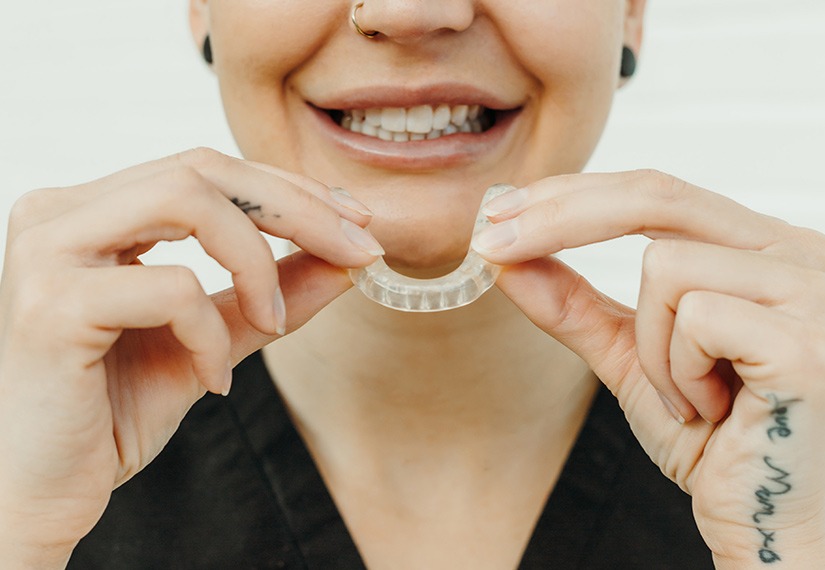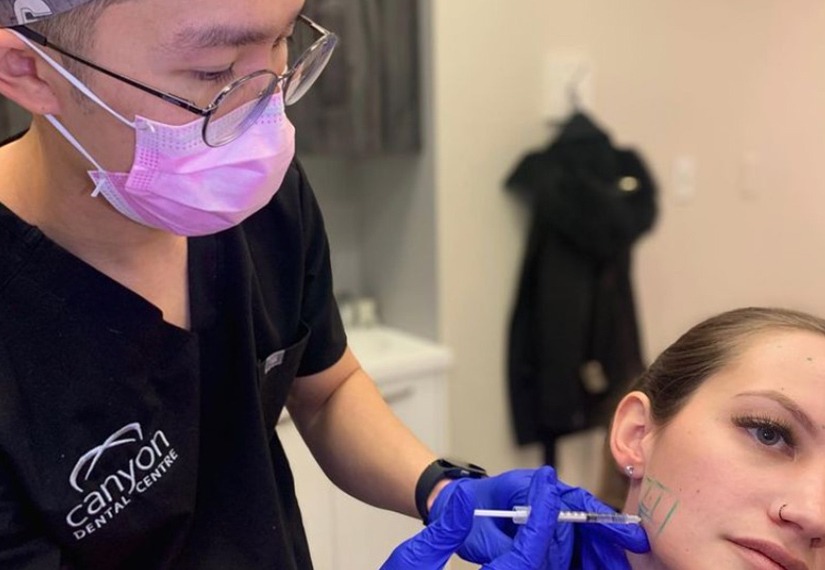If you suffer from chronic headaches or neck pain, have trouble opening/closing your mouth when speaking and eating, notice that your jaw clicks or pops, and/or have been experiencing radiating pain in your jaw, you might be suffering from TMJ pain, otherwise known as temporomandibular Dysfunction (TMD). Canyon Dental Centre is here to help! With a variety of treatment options available to help alleviate your pain, discomfort and related issues associated with TMD, Canyon Dental Centre can help you get on with your day pain free.
Suffering From Jaw Discomfort? We Can Help With That!

What is TMJ/TMD?

For many people, the temporomandibular joint (TMJ), or the joint that connects your jawbone to your skull on both sides of your mouth and allows your jaw to open and close as well as move from side to side, can become overworked or stressed. This stress can lead to temporomandibular disorders (TMD), or any disorder of the jaw muscles, temporomandibular joints, and nerves. TMD and related disorders (including Bruxism) are associated with chronic facial pain and a host of other symptoms including muscle issues that affect jaw movement, facial pain around the jaw joint, frequent headaches, and a variety of other issues that can show up.
Symptoms of TMJ/TMD
- Pain or difficulty opening your mouth.
- Face, head, jaw, neck and shoulder pain or soreness
- Ear pain and/or hearing difficulties
- Tired or tight jaw muscles
- Teeth grinding or clenching (Bruxism), which can be loud enough to wake a sleeping partner. Symptoms specific to Bruxism include:
- Chipped, flattened fractured or loose teeth as a result of teeth grinding or clenching
- Worn tooth enamel
- Increased pain or tooth sensitivity
- Damage from chewing on the inside of cheek
- Sleep disruption
- Persistent fatigue
- Popping or grating sounds in the joints
- Frequent headaches
Treatment for Bruxism
Canyon Dental Centre understands that each patient is different and will require individualized care and attention. There is such a wide range of symptoms associated with bruxism and finding the best treatment option can sometimes involve more than one health care provider, including physiotherapists, chiropractors, massage therapists etc. If you suffer from Bruxism, a Night Guard may be prescribed. These custom made plastic dental devices are worn over teeth at night in order to protect the teeth and help ease the pain. These appliances also protect teeth from the physical wear and tear that often results from the forces of teeth grinding against each other, so that instead of wearing down your enamel, you bite against the appliance and wear the appliance down instead. A Night Guard or Bruxism Grinding Appliance also helps to decrease the symptoms, like headaches, as well as pain in the face, cranial, neck, shoulder, arm, and back region, by shutting off the muscle activity, which allows the overworked muscles to relax.

Botox® To Treat Tight Jaw Muscles

Therapeutic Botox® is another option to treat tight jaw muscles associated with clenching and grinding. Dentists are highly qualified to administer Botox since they are trained in facial structure and facial anatomy, have exceptional knowledge and experience with head and neck anatomy, are competent and comfortable using needles, and know more than anyone what makes a great smile. Typical Botox injections will last for 3-5 months.



